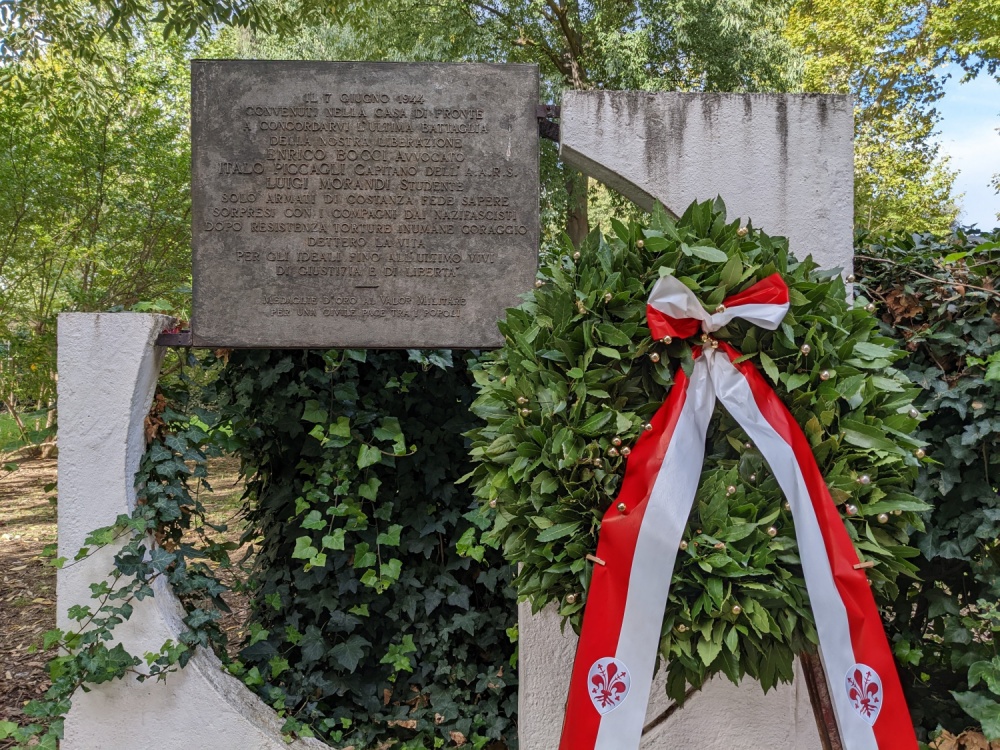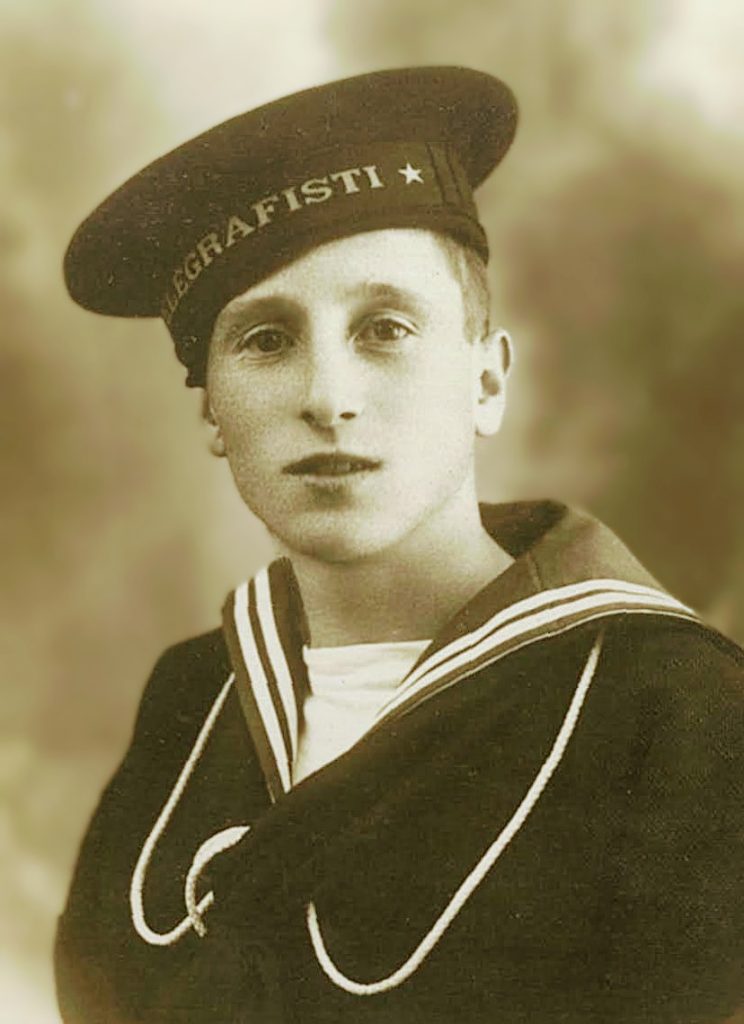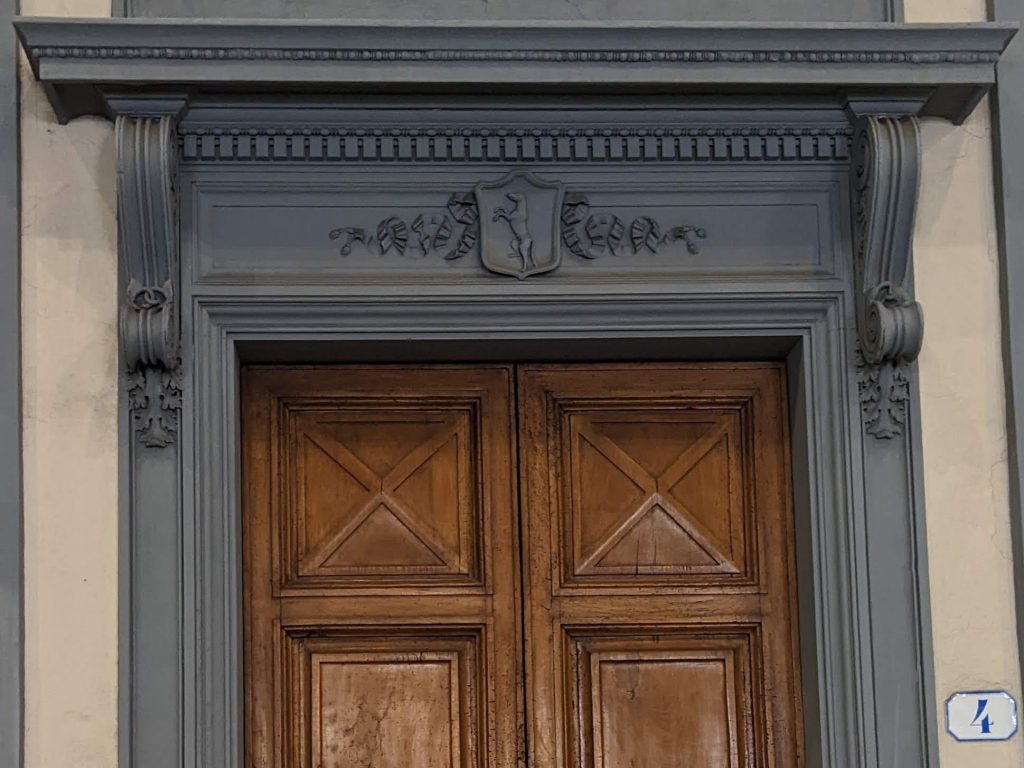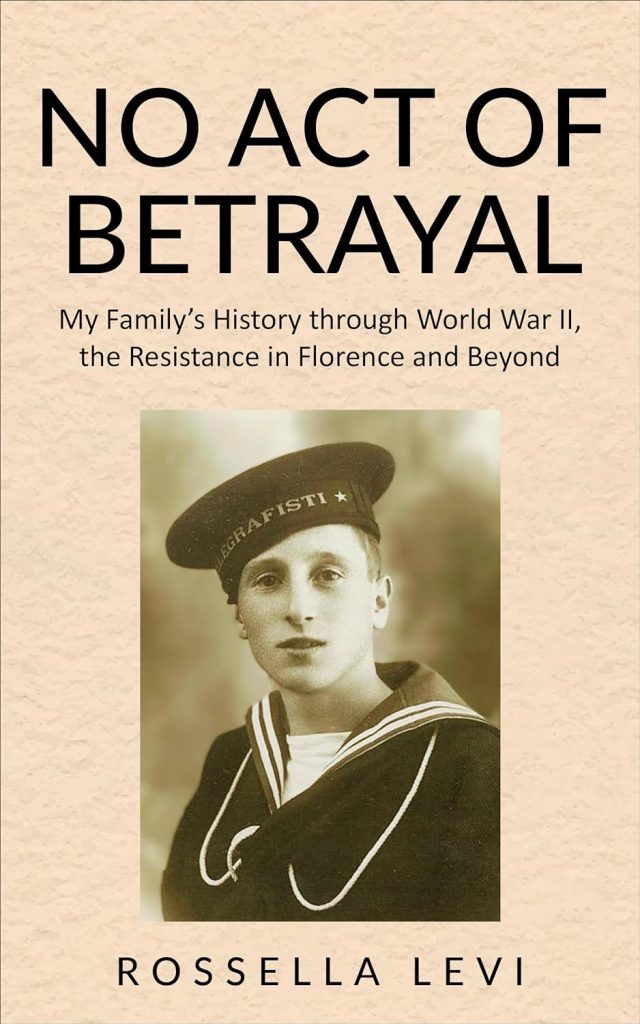Piazza d’Azeglio is a tree-covered square of peace and tranquility, off the beaten tourist path, surrounded by classic 19th-century buildings. It retains much of the feeling of wealth and exclusivity of a bygone era when the piazza was fenced and kept for the exclusive use of the residents.
Standing on the corner of via Vittorio Alfieri today, it is difficult to imagine Nazi soldiers raiding one of the apartments in the piazza. But the raid came on June 7, 1944. The top-floor apartment at piazza d’Azeglio 12 was being used as a meeting place for the Radio CORA Resistance group, a clandestine radio operation feeding the Allies valuable intelligence as they moved north from Rome against an entrenched German army. On that fateful day, they were meeting and broadcasting for the first time from that location.
A memorial stands at the edge of the piazza across from number 12 for three of the Resistance leaders who were captured, tortured and killed. It remembers the fallen, yet it does not tell the whole story. Those who survived have left us their memoirs in Italian describing the events of that day, but there are no English translations.

As the stories are so compelling, tragic and relevant to today, we are publishing them in English for the first time, starting this October with the translation of Rossella Levi’s book Fra Storia e Memoria: Una Famiglia Ebraica Triestina dal 1938 al Secondo Dopoguerra (Giuntina 2021) this October. Rossella is the daughter of Renato Levi, the radio operator of the CORA group for most of its operation. She was prompted to write the book because her father was wrongly accused in a national newspaper almost 40 years after the raid of having betrayed the group.
Levi was an Italian Jew from Trieste, a trained radio operator in the Italian Navy until the anti-Jewish laws forced him out, and someone who fought with the Allies in North Africa against the Nazis. He and another Italian officer, Nicola Pasqualin, were dropped behind enemy lines with a radio to establish a link with the Allies and the Resistance.

They made their way to Florence and, in January 1944, met with long-time anti-fascist lawyer and Resistance leader Enrico Bocci. The Allies confirmed their bona fides by broadcasting the message “The Arno flows in Florence”. With that, the transmissions about Nazi troop movements and other intelligence began to flow to the Allies over the next five months. The radio was moved daily from place to place around Florence to avoid detection, often by the women in the group, like Bocci’s secretary, Gilda Larocca. Pasqualin, who encoded the messages, was hidden by Larocca in Bocci’s law offices at via Tornabuoni 4. Throngs of people walk by that building every day now without knowing its history.

Luigi Morandi was the radio operator that day, standing in for Levi, whose height and red hair made him too conspicuous to be in the new meeting place in the piazza. Morandi defended the radio in the raid, killing one German soldier, but was shot himself and died three days later. Bocci, Larocca, Guido Focacci, Gianfranco Gilardini and Carlo Campolmi of the Tuscan Resistance, and Captain Italo Piccagli were captured. Morandi’s sister Andreina, a staffetta for the Resistance, and her family, were arrested separately, as was Bocci’s wife, Mitzi. Four other radio operators who the Allied parachuted in a few days earlier also were captured. It was the end of Radio CORA, but the beginning of suffering for the group. They were taken to the notorious Gestapo headquarters at Villa Triste, where they were beaten and tortured. A few days later, Piccagli and the four telegraphers were executed in the woods of nearby Cercina. Bocci was also murdered, but his body has never been found.
The others from the CORA group were sent to a holding camp at Fossoli for deportation. Larocca escaped while being transferred to a camp and resumed working for the Resistance in Milan and Bologna. Piccagli’s wife, Ruth, a Jew, survived Auschwitz. Luigi Morandi’s father died, likely in Dachau, but his sister Andreina had a dramatic rescue from Italian police, who were fooled by partisans dressed in Nazi uniforms. Campolmi survived the camps as well.
There is little doubt that the CORA group was betrayed, but it is not known by whom. Rossella Levi definitively lays to rest the canard that it was her father. The other CORA survivors have their own theories, but the truth probably will remain buried with the dead. We decided to translate Rossella’s book because in addition to telling the dramatic story of Radio CORA in English, her family story of survival during the war gives life to the sacrifices and hardships of those terrible times. We should never forget.

Rossella Levi will read from Fra Storia e Memoria: Una Famiglia Ebraica Triestina dal 1938 al Secondo Dopoguerra alongside English translations by Johanna Bishop on October 19 at 5pm in the Reading Room (Salone di Lettura) at Biblioteca Marucelliana (via Camillo Cavour 43), with an introduction by library director Luca Faldi. Attendance is free.




